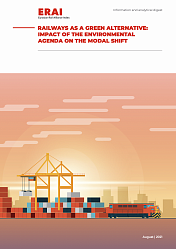The report from the Swiss multinational investment bank, By train or by plane? The traveller’s dilemma after Covid-19 and amid climate change concerns, says countries are unlikely to abandon their ambition to reduce carbon emissions by 2050, and passengers are more likely accept longer travel times by train.
"We believe the global, and in particular the European, railway markets are poised for growth rates higher than historical levels in both the near and long term, driven by three key drivers: environmental, social, and governance (ESG) trends, efficiency, and convenience," UBS says. "HSTs in particular should benefit from these drivers, with the European Railway Industry Association (Unife) forecasting a >10% compound annual growth rate (CAGR) in the medium term, which is significantly higher than the CAGR of 3% it forecasts for rail overall."
Aviation represents around 2.5-3% of global emissions, but around 15% of transport-related emissions. In Europe in 2017, transport generated 4483 million-tonnes of CO2 equivalent. Road transport accounted for the dominant share of greenhouse gas emissions at 73%, compared with aviation at 14%, maritime at 13.5% and rail at 0.5%.
UBS says rail is the best available solution to solve the problems posed by population growth, rising standards of living and increased demand for transport, both locally and internationally.



